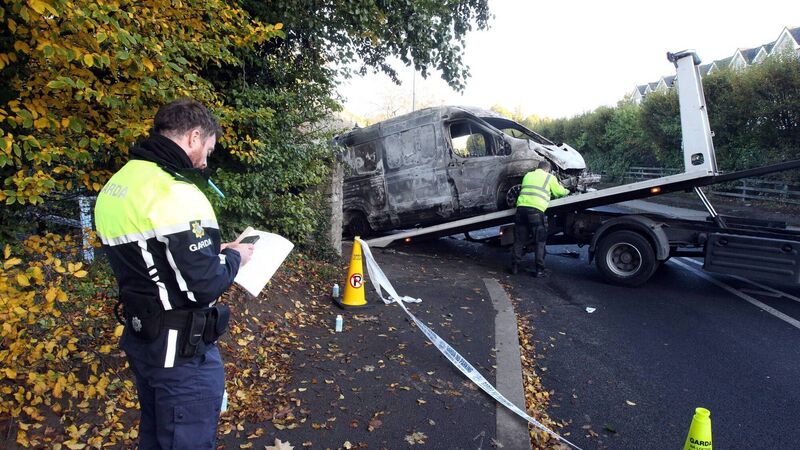Lack of action on hate speech contributing to racist violence

A burnt-out Garda van is taken away after rioters set it on fire during a protest outside the Citywest Ipas centre in Saggart, Dublin, in October. Picture: Padraig O'Reilly
I have been researching anti-Muslim racism in Ireland for the past 15 years. During that time, I have developed an evidence base that has charted the form of anti-Muslim racism in the Irish context. This has included gathering data with literally hundreds of Muslim men and women.
These data, which I have published on, and spoken publicly about, highlight how, when it comes to this phenomenon, patterns and manifestations of anti-Muslim racism in Ireland are no different to those in other countries.
















